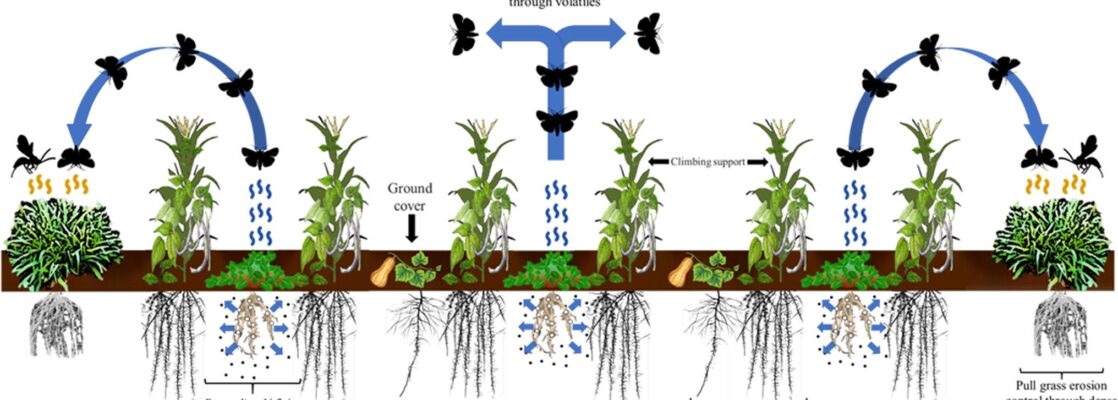Achieving food security remains a pressing challenge for small-scale farmers, especially in sub-Saharan Africa and Latin America. Ongoing climate change, invasive noxious weeds, and crop pests further exacerbate the situation. Optimizing traditional cropping systems for sustainable yields and climate-resilient production is imperative in order to address this challenge. The pre-Columbian milpa system of intercropping maize with companion crops such as beans (Phaseolus vulgaris) and squash (Cucurbita spp.) is one effective system that has been shown to produce outstanding yields per unit area compared to monoculture systems. The Push-Pull Technology developed in East Africa, based on the use of repellent and trap companion plants intercropped with maize (and to a lesser extent sorghum), is seen to be similarly effective in minimizing the impact of major pests on yields, including striga weed (Striga spp.), maize stemborers, and the fall armyworm (Spodoptera frugiperda). Although both systems have the potential to compensate for each other’s limitations, there has been no cross-system learning between the Mesoamerican milpa and the East African Push-Pull Technology. Here, we review both systems and present the advantages likely to be obtained by combining these technologies in small-scale farming. The proposed milpa push-pull system could adapt to different gradients of altitude, rainfall, and soil nutrient levels, in addition to controlling pests,and therefore has the potential to become a fundamental cropping technique in Latin America and sub-Saharan Africa.
Authors
Felipe Librán-Embid, Adewole Olagoke & Emily A. Martin
Download PDF here.


